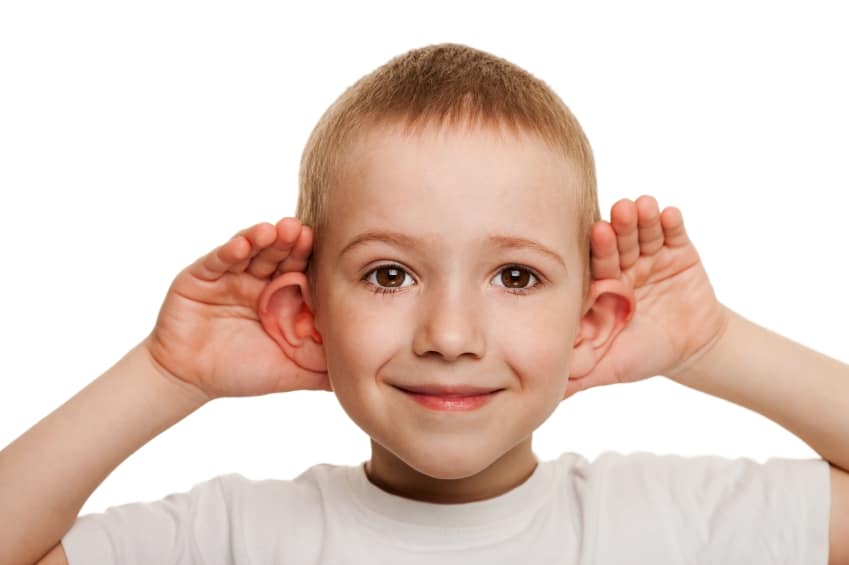What do you know about Sluggish Cognitive Tempo (SCT)?

Attention disorders in children are becomingly increasingly scrutinized as the numbers of prescriptions nationwide skyrockets. More than six million children have been diagnosed with attention deficit hyperactivity disorder (ADHD), and those numbers are steadily on the rise. Although children 17 years and younger had a 7% decrease in overall prescriptions, the number of ADHD prescriptions rose a whopping 46%. Shockingly, there are thousands of toddlers that are being medicated for ADHD, years before they even reach kindergarten.
And all that despite the claim from Dr. Stein, a professor of pediatrics at the University of California, San Diego School of Medicine, that “the most important thing is to get the diagnosis right, and there are very strict criteria that must be met.” So, what if children don’t meet the definition of ADD/ADHD? Hypothetically, let’s say diet, exercise, sleep disorders, learning disabilities, developmental delays, heavy metal toxicity, ADHD, etc. has been ruled out, but a child still can’t pay attention. The child seems sluggish, lethargic and unable to focus. He is apathetic, confused, maybe even a little fussy. Clearly, given the first two symptoms, it is not from an overactive mind or too much energy, but from daydreaming and slow mental processing.
The diagnosis? Soon, you might hear Sluggish Cognitive Tempo (SCT). At least that is the hope of University of South Carolina psychologist Russell Barkley. His hope, along with other SCT researchers (Stephen P. Becker of Cincinnati Children’s Hospital Medical Center, Benjamin B. Lahey of the University of Chicago and Stephen A. Marshall of Ohio University), is to distinguish SCT from other attention disorders, specifically eliminating the longstanding confusion with ADHD. Some researchers suggest that almost half of the inattentive children diagnosed with ADHD would be better classified as having SCT. With the estimated one million additional children who currently don’t meet ADHD’s criteria but would meet SCT’s, that could mean as many as two million children could be affected.
But is another diagnosis what children need? Many doctors and parents have expressed concerns over the number of children being medicated for ADHD; as we discussed earlier, that number shows no sign of slowing down. Dr. Steve S. Lee, associate professor of psychology at UCLA, said, “The scientist part of me says we need to pursue knowledge, but we know that people will start saying their kids have it, doctors will start diagnosing it and prescribing for it long before we know whether it’s real.”
Where do we draw the line between “normal” and “abnormal” behavior in children? Dr. Lee adds, “ADHD has become a public health, societal question, and it’s a fair question to ask of SCT. We better pump the brakes more diligently.” Many believe that we should fully understand the conditions we already treat before adding new options that have not been fully vetted.
His colleague, Keith McBurnett, a professor of psychiatry at the University of California, San Francisco, agrees that we may be moving too fast. He notes, “We haven’t even agreed on the symptom list” that’s how early on we are in the process.” Allen Frances, professor emeritus at Duke University and former chair of the revision board for the Diagnostic and Statistical Manual (DSM-IV), takes it a step further. He says that SCT “may possibly be the very dumbest and most dangerous idea I have ever encountered”[it] is a remarkably silly name for an even sillier proposal.”
So, don’t expect your child to be receiving a new diagnosis anytime soon, but in time things could change. Autism spectrum disorders illustrate how diagnoses can change over time; in the past few years, the classification has changed drastically, going as far as reclassifying Asperger’s. After all, with attention disorders, there does seem to be a problem. Dr. McBurnett continues, “These children are not the ones giving adults much trouble, so they’re easy to miss. They’re the daydreamy ones, the ones with worked that’s not turned in”¦skipping questions, things like that, that impinge on grades or performance.”
If SCT is added to the psychological classifications, will it be for better or worse? Are researchers diagnosing away normal childhood? At what point does a child get to be a kid? Studies suggest that over 80 percent of children will have qualified for a diagnosis in the DSM-IV by adulthood. With the addition of everyday tantrums to the diagnosis “˜Disruptive Mood Dysregulation Disorder’ in the DSM 5, we may already be able to classify every child in the world as having one disorder or another. Do all of those diagnoses benefit the children? If not, who does it benefit.
Right now, it looks like Eli Lilly, who is focusing Strattera research on SCT. Rebranding their primary, non-stimulant ADHD medication as a cure for SCT could mean billions in sales. And while Shire (makers of Adderall and Vyvanse), Novartis (Focalin) and Janssen (Concerta) claim they are not focusing on SCT, a subtle marketing change could mean a windfall for those producers also. Russell Barkley of the University of South Carolina has been mum on the issue, refusing to comment on his research”¦research that was funded by Eli Lilly. In fairness, Eli Lilly has also funded Dr. McBurnett’s research and he is quick to point out that we are years from understanding the condition, and many more than that from treating it successfully.
So, what do you think? Is sluggish cognitive tempo (SCT) bogus, or a legitimate new diagnosis?


